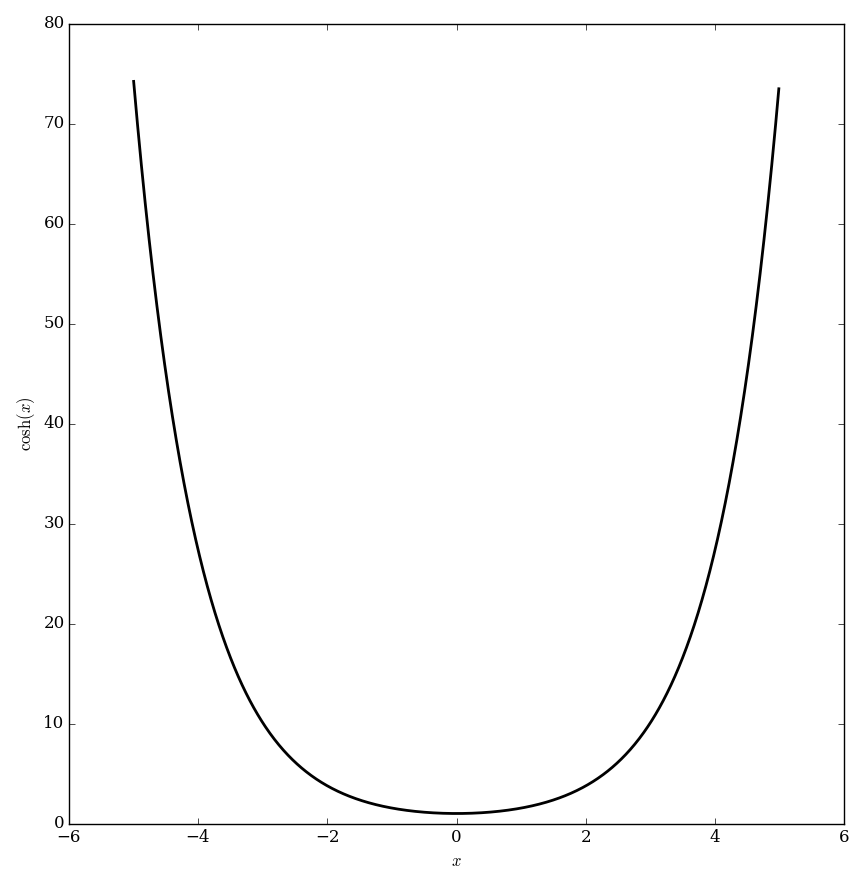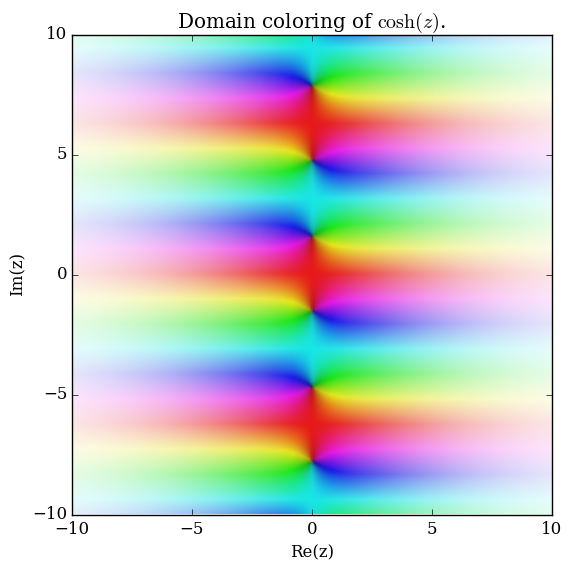Difference between revisions of "Cosh"
From specialfunctionswiki
| Line 1: | Line 1: | ||
| + | __NOTOC__ | ||
| + | |||
The hyperbolic cosine function $\cosh \colon \mathbb{C} \rightarrow \mathbb{C}$ is defined by | The hyperbolic cosine function $\cosh \colon \mathbb{C} \rightarrow \mathbb{C}$ is defined by | ||
$$\mathrm{cosh}(z)=\dfrac{e^z + e^{-z}}{2}$$ | $$\mathrm{cosh}(z)=\dfrac{e^z + e^{-z}}{2}$$ | ||
| Line 10: | Line 12: | ||
=Properties= | =Properties= | ||
| − | + | [[Derivative of cosh]]<br /> | |
| − | + | [[Pythagorean identity for sinh and cosh]]<br /> | |
| − | + | [[Weierstrass factorization of cosh]]<br /> | |
| − | + | [[Relationship between cosh and hypergeometric 0F1]]<br /> | |
| − | + | [[Relationship between Bessel I sub 1/2 and cosh]]<br /> | |
| − | + | [[Relationship between cosh and cos]]<br /> | |
| − | + | [[Relationship between cos and cosh]]<br /> | |
| − | + | [[Relationship between secant, Gudermannian, and cosh]]<br /> | |
| − | + | [[Relationship between cosh, inverse Gudermannian, and sec]]<br /> | |
=See Also= | =See Also= | ||
Revision as of 07:42, 8 June 2016
The hyperbolic cosine function $\cosh \colon \mathbb{C} \rightarrow \mathbb{C}$ is defined by
$$\mathrm{cosh}(z)=\dfrac{e^z + e^{-z}}{2}$$
Domain coloring of analytic continuation of $\cosh$.
Properties
Derivative of cosh
Pythagorean identity for sinh and cosh
Weierstrass factorization of cosh
Relationship between cosh and hypergeometric 0F1
Relationship between Bessel I sub 1/2 and cosh
Relationship between cosh and cos
Relationship between cos and cosh
Relationship between secant, Gudermannian, and cosh
Relationship between cosh, inverse Gudermannian, and sec

